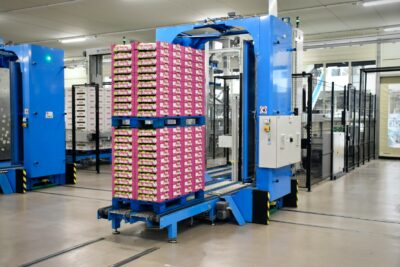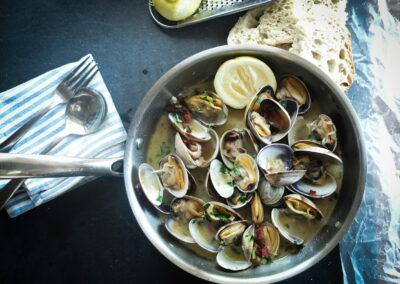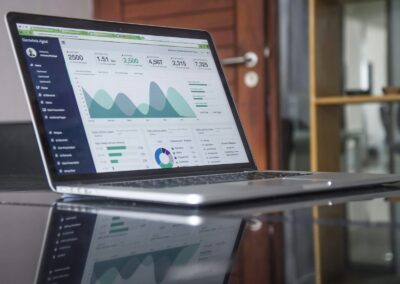Revolutionizing Food Supply Chains through Blockchain Technology
Blockchain in food supply chain management is emerging as a pivotal technology to enhance transparency, traceability, and sustainability. The case study of Food Trust by IBM demonstrates how blockchain can be leveraged to ensure food safety and environmental responsibility throughout the supply chain. In regions like Saudi Arabia and the UAE, where food security and sustainability are critical, adopting blockchain technology can significantly improve the integrity and efficiency of food supply chains. By providing an immutable ledger for tracking every step from farm to table, blockchain ensures that all stakeholders have access to reliable and tamper-proof data, thereby enhancing trust and accountability.
The Role of IBM’s Food Trust in Ensuring Transparency
IBM’s Food Trust is a pioneering blockchain platform that offers end-to-end transparency in the food supply chain. By recording every transaction and movement of food products on a decentralized ledger, Food Trust enables businesses to trace the origin, journey, and handling of food items with unparalleled accuracy. For companies operating in Riyadh and Dubai, this means they can provide consumers with verifiable information about the source and quality of their food. This transparency is crucial in building consumer confidence and meeting stringent regulatory requirements. Furthermore, it helps businesses quickly identify and address issues, such as contamination or fraud, thereby ensuring food safety and quality.
Improving Traceability and Sustainability
Blockchain technology significantly improves traceability in the food supply chain, ensuring that each product’s journey is meticulously documented and accessible. This traceability is essential for maintaining food safety and sustainability. For example, in the UAE and Saudi Arabia, where food imports constitute a large part of the supply chain, blockchain can help verify that imported products meet local standards and certifications. By providing a clear and tamper-proof record of each step in the supply chain, businesses can ensure that their products are sustainably sourced and processed. This not only enhances their environmental credentials but also supports global efforts to reduce food waste and promote sustainable practices.
Leveraging AI and Blockchain for Enhanced Food Safety
The integration of Artificial Intelligence (AI) with blockchain technology offers significant opportunities for enhancing food safety and efficiency in the supply chain. AI can analyze data collected through blockchain to identify patterns, predict trends, and optimize processes. This synergy allows businesses to make informed decisions and quickly respond to potential issues. For instance, AI can help predict and prevent foodborne illnesses by analyzing data on food handling and storage conditions. In Saudi Arabia and the UAE, where technological innovation is a key economic driver, leveraging AI and blockchain can enhance business success and food safety. Companies that adopt these technologies can lead the way in ensuring the highest standards of food quality and safety.
Leadership and Change Management in Implementing Blockchain Solutions
Successful implementation of blockchain solutions for food supply chains requires strong leadership and effective change management. Business executives and mid-level managers in Saudi Arabia and the UAE must be equipped to lead their organizations through this technological transformation. Executive coaching services and management consulting can provide the necessary support, helping leaders develop the strategic vision and communication skills needed to drive change. By fostering a culture of innovation and continuous improvement, businesses can ensure the success of their blockchain initiatives. Effective leadership is crucial in overcoming resistance to change and ensuring that all stakeholders are aligned with the company’s goals of transparency and sustainability.
The Future of Food Supply Chains with Blockchain
The future of food supply chains is closely linked to advancements in blockchain technology. As blockchain continues to evolve, it will offer even greater capabilities for tracking and verifying the journey of food products. Innovations such as the integration of the Metaverse and Generative Artificial Intelligence (GAI) can further enhance the functionality of blockchain in food supply chains. For example, the Metaverse can provide a virtual platform where stakeholders can visualize and interact with the entire supply chain in real-time. GAI can generate predictive models to optimize supply chain operations and reduce inefficiencies. By staying at the forefront of these technological advancements, businesses in Riyadh, Dubai, and beyond can continue to lead in ensuring food safety and sustainability.
#Blockchain #FoodSupplyChain #Transparency #Traceability #FoodSafety #Sustainability #BusinessInnovation #SaudiArabia #UAE #Riyadh #Dubai























